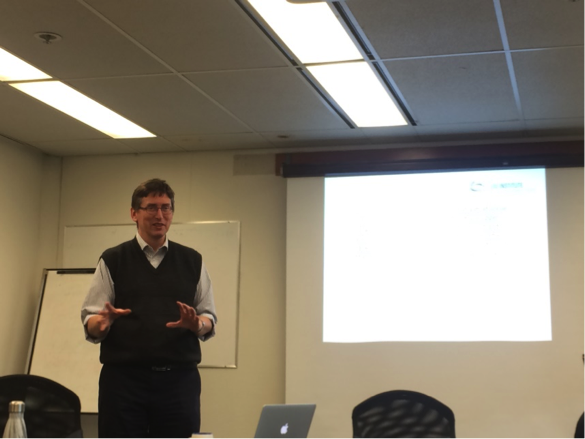"The Lost Books of Modern China: Moral Censorship and the Preservation of ‘Obscene Texts'” (A Digital Humanities and Modern Chinese Studies Series Talk)On November 8, the Modern Chinese Culture Seminar welcomed Professor Michel Hockx of University of Notre Dame for two events at UBC. Prof. Hockx’s public lecture, “The Lost Books of Modern China: Moral Censorship and the Preservation of ‘Obscene’ Texts” drew attention to linkages between the craft of writing and its legal context, as well as to the sometimes long-lasting consequences of legal restrictions for the preservation of literary material. His talk illustrated similarities between the 1910s and the digital age in how limits are put on various publications in China. Taking the example of Meiyu 眉語 (Eyebrow Talk), China’s first literary magazine edited for and by women, which was founded in 1914, banned in 1916, reprinted in 2004, and subsequently digitized, Prof. Hockx’s talk focused on obscenity legislation as a relevant context for literary production and preservation throughout the world. He pointed out that while political censorship in China has been studied extensively, the effects of moral taboos and scholarly bias on the preservation of printed material are unknown. He cited evidence that taboos around nudity and sex continue to have a direct impact on decisions made by Chinese scholars, librarians, and digitizers to ignore certain historical source materials, or to treat them in biased ways.
In conjunction with the lecture, Prof. Hockx offered a graduate seminar on November 8 on “Digital Humanities and Modern Chinese Studies.” The seminar, attended by six graduate students, illustrated the potentials and possibilities of circulating and reading Chinese studies texts online. Prof. Hockx and UBC graduate students discussed examples such as the “Chinese Women’s Magazines in the Late Qing and Early Republican Period” (WoMag) digitization project at the University of Heidelberg, archive.org, the Wayback Machine, Google Books’ Ngram viewer, zotero.org, and various citation repositories. He then illustrated how such digital tools could help a research project by giving a brief case study focused on The forgotten poet Wu Xinghua 吳興華 (1921-1966). Comments are closed.
|
Archives
September 2020
Categories |


 RSS Feed
RSS Feed